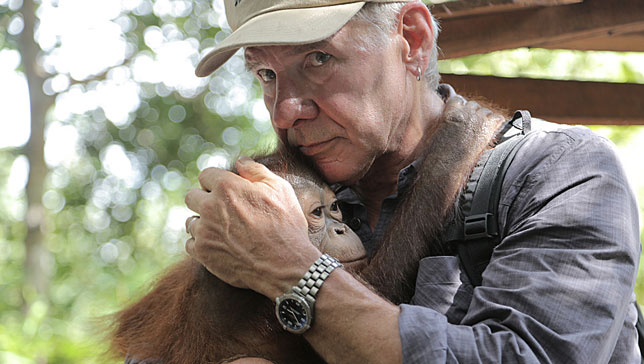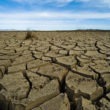Last Sunday, Showtime unveiled its new investigative series Years of Living Dangerously, and the public conversation on climate change in America shifted into a higher gear. The Years program is notably the most ambitious and authoritative examination of the impact of climate change ever to appear in the mainstream media.
The big news about the Years project is that the nine-part series unambiguously reports on the human contribution to greenhouse gases and global warming. From the first episode forward, the series focuses on the human hand in climate change and traces the resulting impact around the world.
For this reason—and because it is both sophisticated filmmaking and skillful journalism—this new series on Showtime is path-breaking television. I had the opportunity to see the first episode for the first time earlier last week (disclosure—I helped the producers in a very modest capacity in their search for financial support for the project). And far more than simply zeroing in on the human role, the filmmakers have produced a television feat without precedent—fine and at times irresistible storytelling that enlists viewers in a rational, un-sensationalized inquiry into the impact and likely trajectory of climate change in this century.
Years is a nine-part series that unambiguously reports on the human contribution to greenhouse gases and global warming.
The producers of the Years series have turned to a range of well-known Americans to help guide the investigation. Don Cheadle, the brilliant African-American actor of Crash and Hotel Rwanda fame, heads to Plainview, Texas, at the heart of the bible belt, where sustained drought has led to the closing of the Cargill beef processing plant. Cheadle may earn his paycheck in cosmopolitan Hollywood, but he hails from Missouri and is at ease in the white, evangelical community that has lost one of its main employers and faces crippling economic hardships. Cheadle encounters a fascinating theological discussion between congregants and Christian environmentalists around the human capacity to make independent decisions—good and bad—in a universe overseen by God. It is a measure of the integrity of the Years project that the producers lead off the series with a respectful segment on a community that has so fiercely resisted the underlying assumptions of climate change.
The opening episode also features the actor Harrison Ford and Tom Friedman, the Pulitzer Prize-winning New York Times columnist and author. Ford has been a member of Conservation International for a generation, and in a style reminiscent of his bushwhacking days in the Indiana Jones films, he dives into the dense tropical forests of Indonesia for an up close look at the unsustainable environmental practices of the palm oil industry. To make room for palm tree seedlings, thousands of square miles of existing forests are ravaged by industrial-scale clear-cutting, releasing vast quantities of sequestered carbon into the atmosphere.
Friedman reports from the civil war in Syria, which we learn had its origins in a regional drought forged by larger shifts in global weather patterns. Having run out of water, desperate farmers and their families descended on Syrian cities that could not sustain the influx, further aggravating existing social and economic conditions. Climate change was not the only factor driving resistance to the Assad regime, but its offspring, extreme weather, was the kindling.
Years of Living Dangerously is that rarest of breeds—discerning television journalism that sustains our interest and informs our values. Even the most hardened climate skeptics will admire the fairness and evenhandedness of this effort by veteran 60 Minutes producers and a nimble, risk-tolerant and civic-minded cable TV company to advance public understanding of undoubtedly the greatest challenge we face.
Hamilton Fish is the publisher of The Washington Spectator.






0 Comments